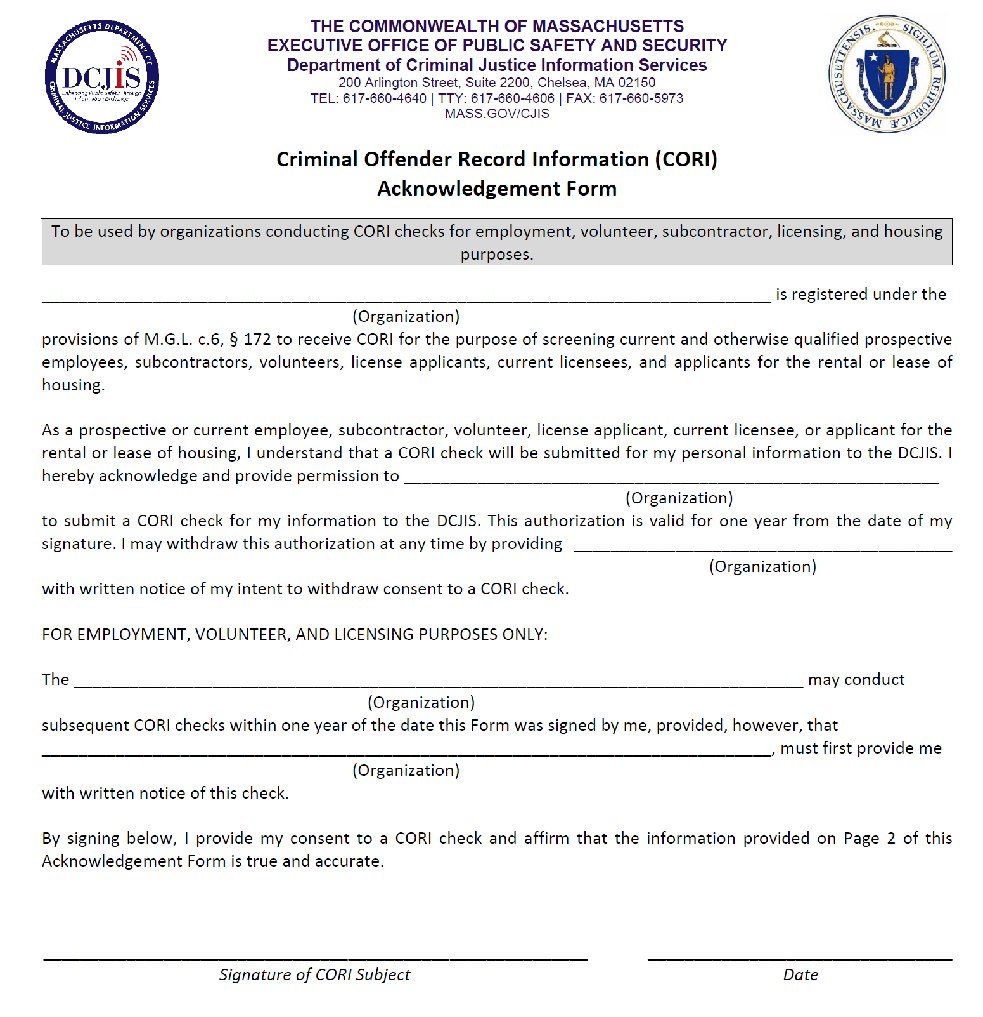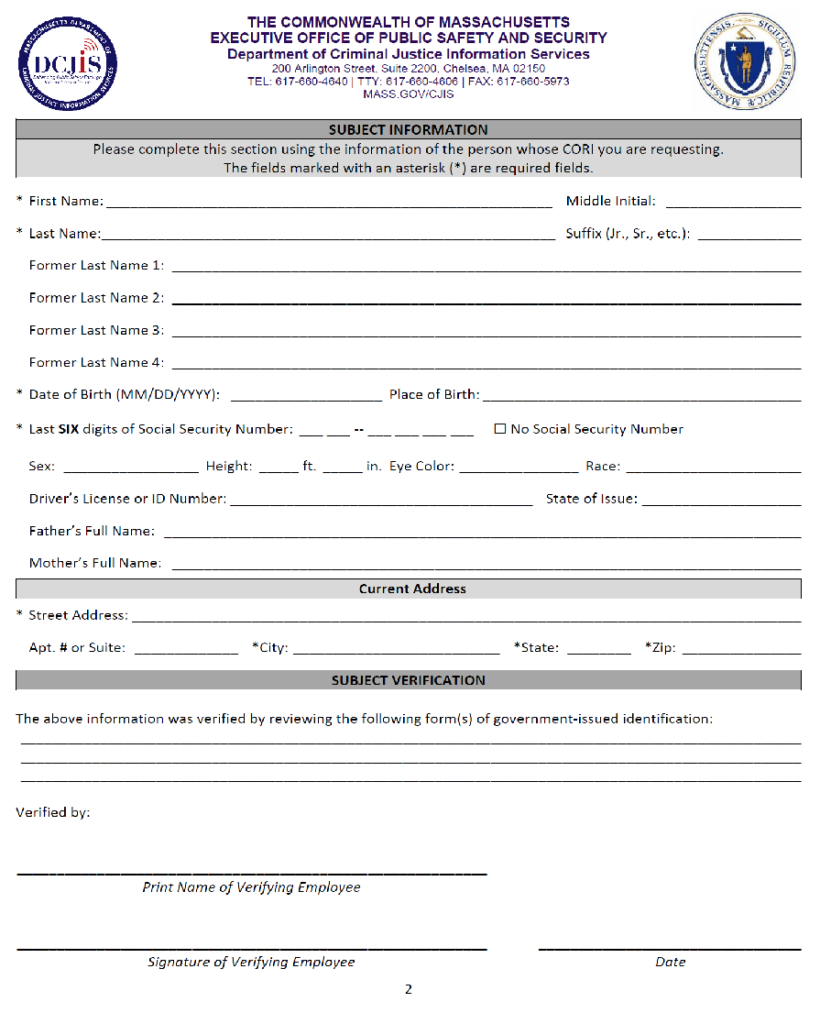Establishing Minimum Training Standards
Training should be used to increase knowledge and awareness of child abuse prevention, to teach staff about responding to children who disclose…
Home / Screening & Hiring / Screening Toolbox: Massachusetts Criminal Background Checks
Criminal background checks are an important tool in your screening and selection process—and you should ensure that you’re aware of any federal, state, or organizational requirements for background checks that pertain to your organization. While these checks are essential, they do not, by themselves, guarantee that sexual offenders will be identified, and can present significant limitations. Not all sex offenders have criminal records, and if they do, their criminal history may not include sexual offenses.
In Massachusetts, the acronym “CORI” stands for “Criminal Offender Record Information.” The term CORI is commonly used to refer to the specific criminal history information that employers, landlords, schools, and others can obtain directly from the Commonwealth via an online system called iCORI. Adult court records are public information unless sealed by court order. There are various ways that individuals and organizations can access CORI information, including by registering the organization with the online iCORI service, conducting an online search, or submitting a request form directly to the Massachusetts Department of Criminal Justice and Information Services (DCJIS). There is also a level of CORI access available to the public called an “Open” CORI. Additional details about access to Massachusetts criminal records, the CORI and iCORI process, organizational requirements, and the types of information CORI can provide can be found on the Department of Criminal Justice Information Services (DCJIS) website and the Massachusetts Court System.
Similarly, the acronym “SORI” stands for “Sex Offender Registry Information” and pertains to information about convicted and/or adjudicated sex offenders residing, working, or attending school in the Commonwealth. In Massachusetts, sex offenders are classified by the Sex Offender Registry Board (SORB) as to their risk to reoffend sexually and the degree of danger they pose to the public. A Level 1 designation means the offender has been deemed a low risk, Level 2 is an offender deemed a moderate risk, and Level 3 is designated as a high risk to re-offend. The Massachusetts Sex Offender Registry Law allows for the release of information on sex offenders categorized at Level 2 and Level 3.
While all Level 3 sex offender information is available on the SORB’s website, the website only lists Level 2 sex offenders classified after July 12, 2013. Organizations and the public can make SORI requests both from local police departments (all Level 2 and Level 3 sex offender information is available upon request) and the SORB. Agencies and organizations can also register with the SORB to utilize its online search process called “eSORI” for employment and volunteer screening purposes. More information about sex offenders and the SORI/eSORI process can be found on the websites of the SORB and the Department of Public Safety.



Training
Training should be used to increase knowledge and awareness of child abuse prevention, to teach staff about responding to children who disclose…
Code of Conduct
Once your Code of Conduct is in place, it’s important to implement it through training and by disseminating the information widely, in a variety…
Training
Training programs are offered to staff at least annually to heighten awareness of your commitment to safety and help create a culture of…
Screening & Hiring
State and federal laws and regulations require specific types of screening and background checks—particularly criminal and sexual offense records…
Code of Conduct
Your Code of Conduct is an essential tool to help you ensure the safety of the children and youth in your care, and prevent child sexual abuse.
Training
Ideally, all children/youth should receive training and education on issues of personal safety and abuse prevention. However, not every organization…
Safe Environments
Safe Environments should be created by having clear sight lines, proper staff-to-child ratios, and safety standards for all personnel and…
Screening & Hiring
By checking a candidate’s references, you can obtain additional information about applicants and help verify their previous work and volunteer…
Sustainability
Long-term organizational change is a process of continuous review, evaluation, and communication. It includes regularly examining what is working…
Screening & Hiring
A personal interview provides an opportunity for you to meet applicants and determine if they are a good fit for your organization. It’s also a …
Customized child sexual abuse prevention guidelines to meet the unique needs of any organization that serves children.
Safe Kids Thrive is managed by the Children's Trust of Massachusetts
Learning Center Registration
Sign up for an account and start your learning experience.
Free Online Assessment
Let us help you find out where to start.
